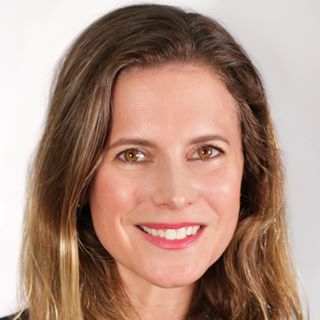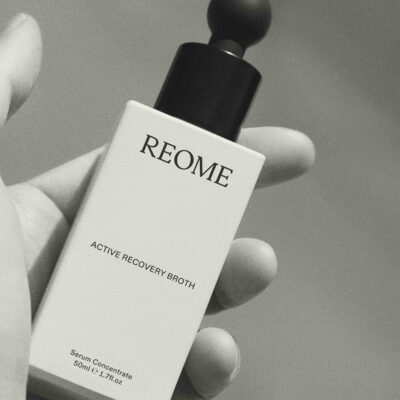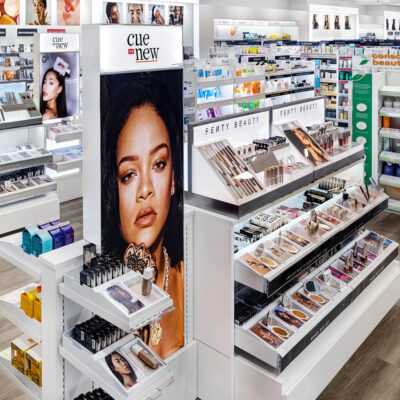
The Perfect Formula: Finding The Right Manufacturing Partner
In this edition of Beauty Independent’s ongoing series posing questions to beauty entrepreneurs, we ask 15 founders and executives: How did you find your manufacturing partner?
- Holly Harding Founder, O'o Hawaii
Our formulation partner was referred to us by a previous vendor from the bath and body company we owned and sold in 2016. This particular formulation chemist came with very high regards and had previously developed a couple of very well known natural brands. We flew to California to meet her and her staff and instantly connected.
Selecting a formulation partner that is like-minded and understands the importance of what you're trying to achieve is key. In addition, make sure they aren't too big or too small for your line, depending on how aggressively you plan to launch and grow. Finding a partner that has solid communication is worth its weight in gold.
- Ashley Ocampo Knowles Founder, Haleys
In a past role, I was in ingredient sales and called on all of the contract manufacturers based in the southwest. As a result, I had a lot of contacts and reached out to one manufacturer that offered reasonable minimum order quantities to start up businesses like mine.
They developed stellar formulas and delivered on time when I needed it. Most importantly, I felt that they aligned with the brand ethos because they are always suggesting skin-friendly ingredients that we could incorporate into our complexion-focused formulas. My advice would be to select a manufacturer that can maintain communication and transparency and also adhere to your timeline. Those qualities are really necessary for a long term partnership.
- Danuta Dudek Founder, Cotarde
In our case, selecting the right laboratory to work with on the formulations was one of the hardest tasks we had to deal with and an adventure on its own. The formulas are specially made for those who spend their lives in harsh, changing conditions. It’s not an easy-to-make product, so I used my professional contacts from past beauty companies I worked with and found someone who appeared to have the right skills, only to discover two years later that it was a huge mistake and all the work was gone.
The process of looking for the right partner with a professional lab and a factory began all over again, and it took us another year to reach the point where we had the right skills as well as the physical equipment onboard. Communication is the key, no matter how professional, established or nice your partner seems to be. Proactive, honest and timely communication is the key in this fast-moving business.
- Christinah Nicolaisen Co-Founder, Eleni & Chris
It is really important to choose a partner who is right in terms of size. It was important for us to pick someone who was not too large, so we felt confident they would prioritize us despite us being a startup.
At the same time, it was important that our formulation partner was someone large enough that we can grow with when we have larger volumes. Doing a thorough due diligence when choosing a partner is very important. It is a big decision so it is very important to take your time. Always ask for references and listen to your gut feeling.
- Alexandra Preston-Morley Co-Founder, Coco & Eve
We sent our brief to a few different factories and went with the one who not only produced the best formula, but who we felt we could trust the most, which is particularly key. You can ride a lot of waves with your supplier, so first and foremost, you must be able to really trust them!
You also need patience. We spent over two years perfecting our formula to ensure it was the most innovative on the market. It was imperative for us to make a formula which was vegan, as well as sulfate, phthalate, gluten, cruelty- and paraben-free, and our U.S. factory could fulfill all this for us.
- Chris Collins Founder, Chris Collins, Alchemy of Fragrance
When I decided to create a fragrance brand, I knew the first order of business would be to find a fragrance house that would produce my formulations. I decided to travel to Grasse, France, the birthplace of perfumery, to meet with any fragrance and flavors house that would see me.
The bigger, more well-known houses really wanted to work with me, but, since I wasn’t proven, they wanted to offer me formulations they had already created, formulations they already had in their library. I found a smaller fragrance house that allowed me to work with their perfumers and create my fragrances from scratch. It was very important for me create to create original scents because I was able to make them more personal. It was much easier to create a connection between my emotions and stories I wanted my fragrances to tell.
- Alexander Zorub Founder and CEO, Olio Di Alessandro
I spent a decade of nights and weekends learning cosmetic chemistry from scratch. A 100% of the innovation and competitive advantage behind Olio stems from this effort. I wanted Olio to be a totally new paradigm for both safety and efficacy, so naturally I couldn’t rely on existing sources and established methods.
As with entrepreneurs and inventors in many fields, approaching the science with zero experience or traditional training was actually an advantage. Uninfluenced by existing paradigms, I had an infinitely higher likelihood of making the scientific insights that out-innovated industry norms.
So, my advice is to be your own formulator. Learn and invent it yourself to have have something that can’t be replicated. It’s not easy, but you’ll never be differentiated or better than the rest if you rely on external suppliers because other brands can also use those formulators.
- Heather Wilson Director of Brand Development, InstaNatural
I think the most important in finding a formulation partner is to remember that they are a partner and it is a relationship that requires communication, understanding and work. Your brand might not be for every formulator, and every formulator is not for every brand, and that is OK.
When learning about potential partners, don’t be afraid to tell them your standards, ethos, goals and expectations, and be sure to understand theirs as well. If you align on those elements and both believe in the same things, the partnership will be able to flourish. Just like any relationship, if you cannot agree on core values, it will not work.
- Urvashi Singh Founder, Aphorism
I am the chief formulator for Aphorism. Nothing gives me more joy, and all the corresponding agony, than creating perfect little jars and bottles of wonderful skincare. In my prior life, I was responsible for developing the new product pipeline all across North and South America for one of the biggest consumer health companies in the world.
That, in combination with my training in both nutrition and natural and organic skincare - and, as you know, nutrition and skincare are inextricably linked - gave me a powerful foundation and basis to create my very own formulations. Of course, that also means I take a long time to perfect each formula as it is a painstaking process with many iterations to source and formulate with only the purest ingredients. We also work extensively with labs to test our formulas to ensure they meet our very high standards of safety and stability.
- Matthew Stillman Founder, Primal Derma
We had a unique situation to deal with regarding our formulation. We are still small enough that everything is made, mixed, jarred, stored and shipped in-house. But grass-fed beef tallow has a scent that I call “clean barn” that doesn't smell bad, but does smell animal-y.
We didn't want to bleach our tallow of it's scent because we would lose a good portion of what is so great about it along the cleaning. We knew that getting the scent right was really important, but our early attempts always came off as two scents: lavender and tallow or lemongrass and tallow. Our scents were cohabiting, but not marrying.
So, we started working our contacts to find a professional nose with a deep knowledge of botanicals and a wild-crafted essential oil and scent mixer. It wasn't cheap finding someone who understood how to get high note oil scents to match with low note tallow scents and vice versa, but we now have a scent where tallow is part of the scent profile and isn't too masculine or feminine.
Keep looking until you find the person or organization who understands your needs and world view for your formulation. Shortcuts to get to market don't help your product or the industry. Having more fully considered and approached products is better for everyone.
- Mehrbano Sethi Founder, Luscious Cosmetics
Networking at industry events and creating long-term relationships is important in order to have access to top-level formulators and suppliers. We work with several formulators depending on the product. One of them is a factory that manufactures some of our products and has a cutting edge R&D/custom formulation department. Another one is a passionate and talented cosmetic chemist in California who creates our specialty formulas.
- Rachel Roff Founder, Urban Skin Rx and Urban Skin Solutions Med Spa
I consider myself a formulator, but I’m far from a chemist. I learned a lot by being an aesthetician and treating thousands of clients with different ingredients and product lines at my medical spa. Through those years of experience, I learned which active ingredients and which strengths were most effective at treating different skin types and conditions.
However, again, I'm far from a chemist. Most labs that you contract manufacture with have a chemist that you work with. I go to them and tell them the ingredients I do and don't like and how the product should feel and look and they figure out the rest.
- Peter Lee CEO, Saranghae
We're a bit of a unique independent brand in the sense that we've owned our core formulation for over 50 years. My mother started making homemade skin creams using locally grown botanical ingredients to help with burn and scar victims, but, in fact, our history goes even further back.
My family has been involved in Eastern medicine for over 600 years, and our ancestors were contributors to the Korean book of medicine called the Dongui Bogam, which is now considered a national treasure and still used to this day.
Our formulation has, of course, changed somewhat over the years with the introduction of new extraction and processing technologies, but our core formulation is about 80% the same as it was 50 years ago. The more relevant question for us, then, is how did we find our current R/D and manufacturing partners and what did we learn from this experience?
All of Saranghae's products are developed, tested and manufactured in Korea. So, we are 100% South Korean and all of our partners are South Korean companies. The first criteria is always the cultural fit. Do their core philosophies match with ours? For example, we only work with suppliers that pay a fair, living wage, practice sustainable harvesting, and do not test on animals. We've actually terminated relationship with large, global suppliers because we felt that they did not fit with our philosophy.
The second criteria is quality and adherence to documented processes. For example, QS and ISO certification is the minimum. The supplier should be able to show us the entire process flow from inception, sampling, manufacturing, quality assurance and a checklist on how each step is held accountable. All of our suppliers have state-of-the-art facilities, and keep them extremely clean and organized.
Lastly, we insist on having a relationship with the owner or head of our partner company. We've noticed over the years that, when owners of the suppliers are committed to our long term success, the quality of our products are unmatched. An owner of one of our suppliers helped facilitate our relationship with the R&D team from Seoul National University, who helped develop our SH-Napre(TM) natural preservative technology. Without him, I'm confident that Saranghae as we are today would not exist.
- Jean Baik Founder, Miss A
We are currently partnered and working with over 30 factories all over the world, mainly in Asia, for all of our products. Each factory has a team of cosmetic chemists that I work with to develop the formulas of the AOA Studio products. When we source out new factories, I always check what types of formulations and products they are strong at. You need to make sure they have a lot of experience and knowledge in the formula that you are looking for.
- Mariya Nurislamova CEO and Co-Founder, Scentbird and Deck of Scarlet
We actually work with several partners depending on the project. We source these partners through networking contacts and via referrals to ensure their work is top notch. It's really important that each partner we work with understands what we’re trying to achieve and is also excited about our brand story and positioning.
Finding the right partner is similar to dating in the sense that we want to build and grow the relationship as we want our partners to do the same. This makes for a harmonious collaboration in a sense that they'll be more proactive in suggesting relevant ideas on current projects or bluesky concepts, from the technical and formulation standpoint, while also engaging their team internally to keep our development moving smoothly.
Our directors of product development, Kim-Davy Hoeu and Sharon Bryan, also play a key role in bringing our products to life. They work to carefully select each partner based on their strengths and expertise. For example, some manufacturers will be experts in solid formulas such as soaps, others in liquid fills, and others in color cosmetics or home care. These different types of product applications require different technical skills from R&D, but also different machines for production.
For a comprehensive listing of manufacturers and ingredients suppliers, see Uplink by Beauty Independent, a tool to help beauty entrepreneurs connect with trusted solution providers.
If you have a question you’d like Beauty Independent to ask beauty entrepreneurs, please send it to editor@beautyindependent.com.





